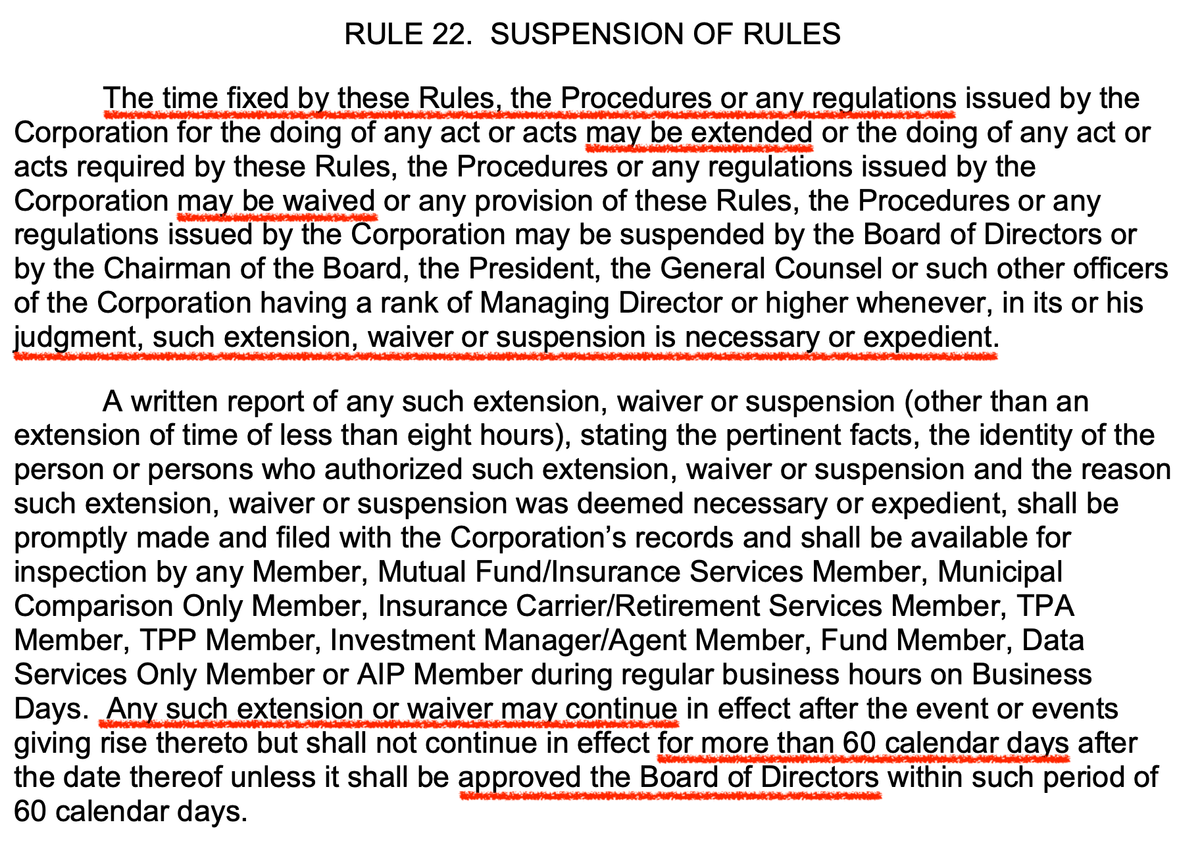Peirce & Uyeda dissent

"While the Order addresses only one transfer agent, its reach is broader. The undertaking implies that all mutual funds, with prompting from their transfer agents, should be sending periodic escheatment notices & conducting escheatment education for their shareholders."
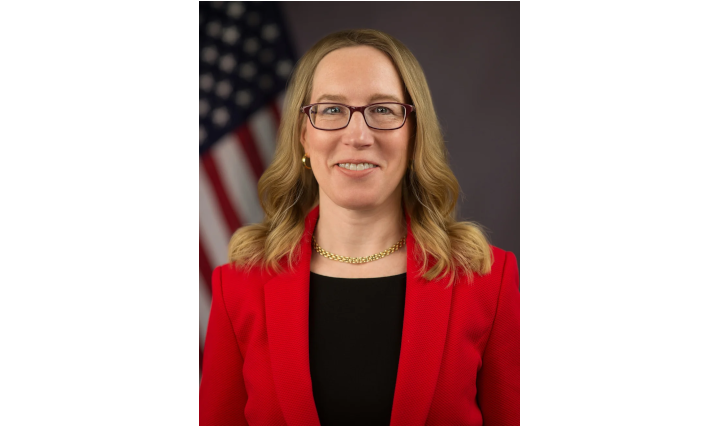
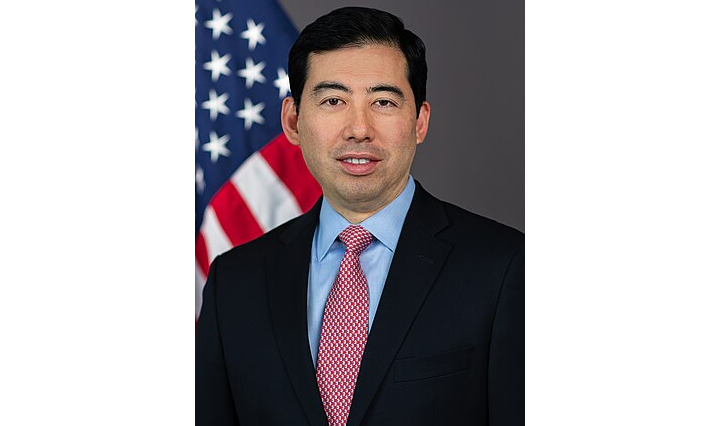
Source: https://www.sec.gov/news/statement/peirce-uyeda-statement-dst-asset-manager-solutions-inc-081723
The Commission once again uses an enforcement action as a substitute for notice and comment rulemaking. It does so today in a case that finds a registered transfer agent, DST Asset Manager Solutions, Inc. (“DST”), failed to act reasonably in its efforts to locate lost securityholders. Specifically, the Order finds that DST “failed to take reasonable steps to find lost securityholders as prescribed by [Rule 17Ad-17 under the Securities Exchange Act of 1934], putting those securityholders’ assets at risk of being handed over to state governments – escheated – as unclaimed assets.”[1] Tucked into the Commission’s Order is an undertaking that effectively imposes a substantive new disclosure requirement on mutual funds.[2] Accordingly, we dissent.[3]
The Order includes an undertaking requiring DST to “[r]equest that its mutual fund clients periodically send out notifications to their client shareholder base informing them of the risk of escheatment and educating them on steps to take to avoid dormancy, including updating their addresses and otherwise establishing contact with the funds or DST.”[4] The Order also requires DST to certify, in writing, compliance with the undertaking. That certification must include “written evidence of compliance in the form of a narrative, and be supported by exhibits sufficient to demonstrate compliance,” which the Commission staff can demand be supplemented with “further evidence of compliance.”[5]
In other words, although disguised as a “request” from the transfer agent to its mutual fund clients, the additional disclosures referenced in the undertaking are effectively a requirement imposed by the Commission. If a mutual fund receives a request from its transfer agent that the Commission required the transfer agent to make, fund counsel reasonably will view it as tantamount to a Commission requirement. While the Order addresses only one transfer agent, its reach is broader. The undertaking implies that all mutual funds, with prompting from their transfer agents, should be sending periodic escheatment notices and conducting escheatment education for their shareholders.
Many mutual funds already include voluntary registration statement disclosure regarding escheatment. Thus, the Order creates the implication that mutual funds’ existing disclosures regarding escheatment are inadequate, but offers no guidance about what would be adequate. Is an annual disclosure enough to satisfy the Order’s undertaking to send out notifications periodically? How detailed should the disclosure be to appropriately educate fund shareholders? What documents should include the disclosure? Can such disclosure be satisfied using the layered disclosure approach currently used for prospectuses and annual and semi-annual reports? The Order offers no answers.
Commission rules already subject mutual funds to robust disclosure requirements.[6] The Commission may, consistent with the Administrative Procedure Act, engage in rulemaking to supplement or amend these existing requirements. But the Commission is a victim of its own misguided overambition. What is a regulator to do when it cannot fit one more rulemaking on the calendar? The answer appears to be “send enforcement to do the rulemaking.” We dissent.
What they are going on about:
TLDRS:
Hester Peirce & Mark Uyeda dissent on Transfer Agents keeping folks informed: "While the Order addresses only one transfer agent, its reach is broader. The undertaking implies that all mutual funds, with prompting from their transfer agents, should be sending periodic escheatment notices & conducting escheatment education for their shareholders."



